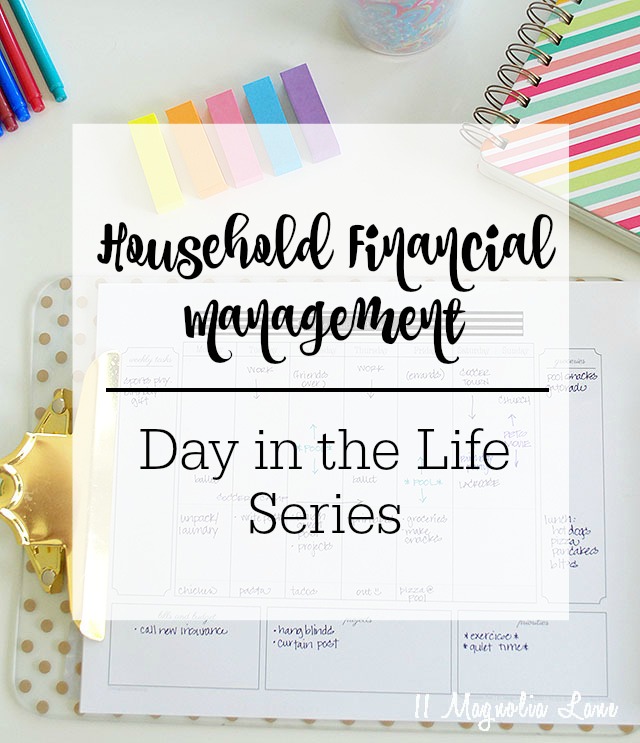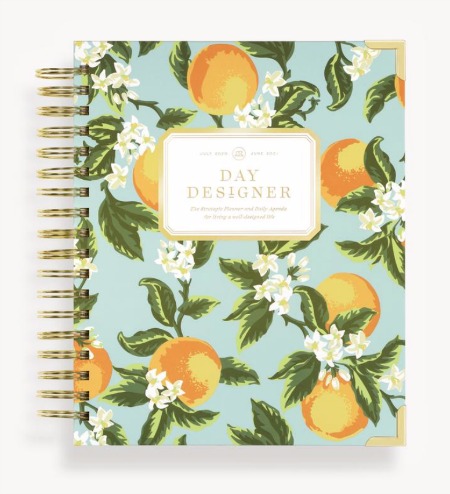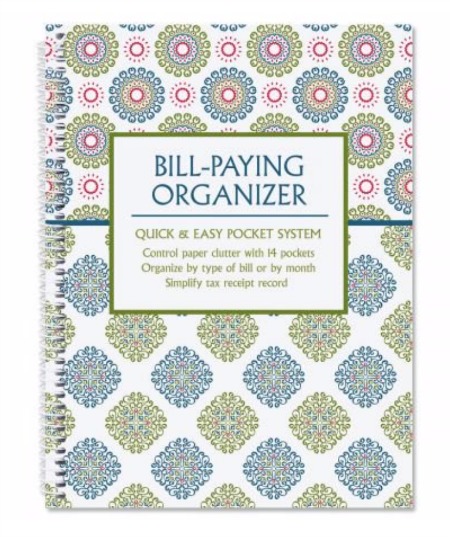It’s time for another installment in our monthly A Day in the Life series, and this month’s topic is household financial management.
At first I thought that I really didn’t have much to share, but now I realize that I do, I just don’t have a lot of pretty photos to go along with my tips!

What seems to make the most sense is just to share my system for each of the following areas: Bills, Giving/Saving, and Taxes, and I’ll discuss how I manage all the paperwork throughout.
Bill Paying
Doesn’t bill paying look a lot different today than it did in years past? I probably only receive two or three paper bills per month anymore; most of them are electronic or even via text. I’m fine with that since there’s less paper clutter to manage and I can always pull copies up online if I need them.
Here’s my system: as soon as I receive a bill, I schedule it to be paid via our bank’s website (I usually use their app on my phone to schedule bills). Then I jot a note on my day planner (I use this one) on the 1st or the 15th of the month to remind myself to enter it on my checkbook register.
Snail mail bills get filed in a three ring binder that has tabbed pockets for each month. I keep paper bills for a year and then shred them, or if I need them for tax purposes, I scan them and save them on my computer before I file or shred them (more on this in the tax section below). I have used a bill paying organizer like this in the past and it works great if more of your bills are paper bills:
Even if I get a bill in the mail, I still pay via our bank’s bill pay system so that they mail the check for me. There’s no fee and of course it saves time and postage. I write very few checks these days.
Speaking of checks and checking, our bank hasn’t mailed us canceled checks for years, which I love. If I need to look one up, they have a photo of it online. I’ve also turned off having paper checking statements sent to us and just balance our checkbook online.
We do have a monthly budget that I typed up on Numbers years ago (that’s the Mac version of Excel), but after this many years I hardly need to look at it because I have all of our recurring payments (investments, life insurance, donations, etc) pretty much memorized.
I will say that when we were newly married it was hugely important to have a written budget so we could see where our money went every month; it helped us to identify where we were spending too much (eating out!) and where we were spending too little (saving for retirement and college). I also used to spend a bunch of money buying cheap crap, for lack of a better word, and it was enlightening to see how much I spent.
If you’re new at budgeting or managing your money, I highly recommend you look at Dave Ramsey’s website or catch his show on the radio. I give him credit for the fact that we learned how to handle money at an early age and that we have an emergency fund (since emergencies always happen, Covid being a great example). If you’re at a more advanced level with your finances, that’s great, but it’s a good place to get started.
This would be a big no-no in Dave’s world, but nowadays we put most of our monthly purchases on our American Express Platinum card so we can accrue points. We pay it off every single month and I would never recommend this as a system to someone who has a problem with overspending or credit card debt, but it works for us. The American Express Platinum has huge benefits and the $500 annual fee is waived for active duty military (if you’re interested, this is my referral link that will give you 60K extra points).
Giving/Saving
You’ve heard the expression, “pay yourself first,” and that’s the system that works for us. The first debits or transfers with every paycheck are to our giving account (for church tithes and charitable donations), savings accounts, and retirement/college savings. We’ve set them up to happen automatically so we don’t even have to think about them.
It’s important to mention that this is where we are now…with almost 25 years of marriage and established careers. It hasn’t always been that way! We were talking with our kids a few weeks ago about how we used to give each other “allowances” of about $50 a month to spend on extras, and we saved just $30 a month to our savings account because that’s all we could spare. Even if it’s just a few dollars, getting into the habit of saving will pay off later, and I promise those dollars will add up over time.
“Whether you think you can or you think you can’t, you’re right.” -Henry Ford
I’m completely sympathetic that many are going through a time of financial chaos and crisis thanks to the pandemic; we are certainly not immune at our house, either. Dave Ramsey has several posts on how to prioritize your spending if you’re in the middle of a financial emergency; keep the tips I’m sharing for when times are better.
One last recommendation in this section; if you’re a military family, I highly recommend Kate Horrell’s blog for all things related to military finance.
Taxes
Everyone’s favorite subject, right? I did our taxes for years, first filling out the paper forms and then moving to Turbo Tax, but it got too complicated and time-consuming a few years ago and our accountant has been worth every penny. She handles our personal and business taxes and I know she has saved us far more than we’ve spent to compensate her, plus I no longer spend half of April screaming at the computer.
Years ago, I created two spreadsheets for personal and businesses taxes, and I update them as we progress through the year. If bills or receipts need to be tracked, I log them right away so I don’t forget. I’ll scan receipts using my printer or the Tiny Scanner phone app and save them on my computer (I have one folder for business receipts and another for personal), then I shred the originals.
If you remember when I almost lost my laptop forever (read about that here), you won’t be surprised to hear that I now back it up three ways: to an external hard drive, to my iCloud, and via Backblaze.
I also used some of my courtesy-of-Covid free time at home to scan and save all of our prior years’ tax forms and supporting documentation. I’m just keeping hard copies of the previous seven years; the older ones were shredded after they were scanned and backed up. I can’t tell you how good it felt to shred twenty years’ worth of paper!
Well, if you’re still awake at the end of this, thank you for sticking with me! Any one of the above topics could fill an entire series, so this was just a quick overview, but hopefully you found a few ideas that will help you to either save time or money.
Thanks for stopping by ~ Christy











Leave a Reply